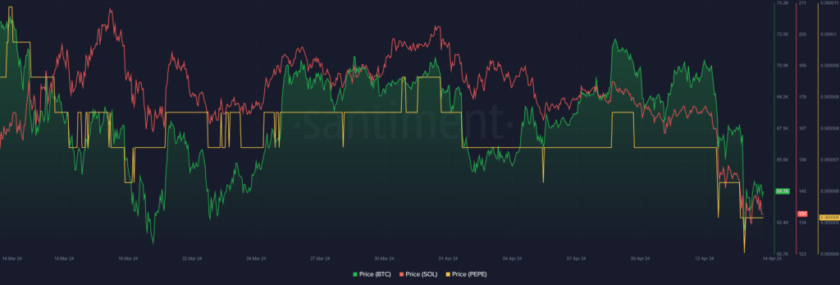Cryptocurrencies have become one of the favorite ways to get away from legal authorities for individuals dealing with selling controlled substances such as opioids. The opioid crisis has become a serious issue as it kills 130 people every day in the U.S. due to overconsumption of opioids in the form of prescription pain relievers, heroin, and synthetic opioids such as fentanyl.
Now, the fight against the opioid crisis is getting tougher as the criminals have become more intelligent and creative with their modus operandi; they are using cryptocurrencies as a method of payment while buying drugs which give drug enforcement authorities hard time to trace and prevent its illegal trade.
A Drug Enforcement Agency (DEA) official told CQ Roll Call, a website and newspaper published in Washington, that the agency is “very much concerned” about the issue. The DEA official further said that criminals using dark web like market destinations to sell drugs online with cryptocurrencies have become one of the most common trends among drug dealers. Cryptocurrencies, by their nature, make it possible to use hidden identities and untraceable transactions, which grant drug dealers an opportunity to escape from authorities.
Fentanyl is one of the substances that the DEA is concerned about as it travels into the country from China or Mexico. Synthetic opioids come second in the list as it could be 50 times more potent even than the popular heroin.
Opioid Trade Is Worth $76 Billion in Bitcoin Annually
According to data revealed by the U.S. Centers for Disease Control and Prevention, overdoses of opioids killed approximately 70,000 people in the United States in 2017; the agency further disclosed that the rate of overdose deaths has been increased six times over in the last 20 years.
The amount spent on buying opioids and heroin-like substances crossed the $76 billion in Bitcoin(BTC)trade every year, as per a report presented by Australian researchers Sean Foley, Jonathan Karlsen, and Talis Putnins.
Sgt. Joshua Lee of the Mesa, Arizona Police Department told CQ Roll Call, “Now, it’s more prevalent than before. Bad guys are realizing they’re less likely to get caught if they move stuff to the dark web.” Apart from Bitcoin, private blockchain cryptocurrencies such as Monero (XMR) are also gaining traction among drug traders, said Lee.
Nicholas Weaver, a lecturer at the University of California, Berkeley told CQ Roll Call in an interview:
“The only other censorship-resistant payment that we have is cash. Cash requires physical proximity. Cryptocurrencies allow you to get away from that. As a consequence, they’re useful for things you couldn’t normally buy online, like drugs and child exploitation material.”
It certainly appears that cryptocurrencies such as Bitcoin and Monero help in facilitating the trade of opioids in the U.S.; however, crypto cannot be blamed for the opioid crisis, which is major issue unrelated to cryptocurrencies.






